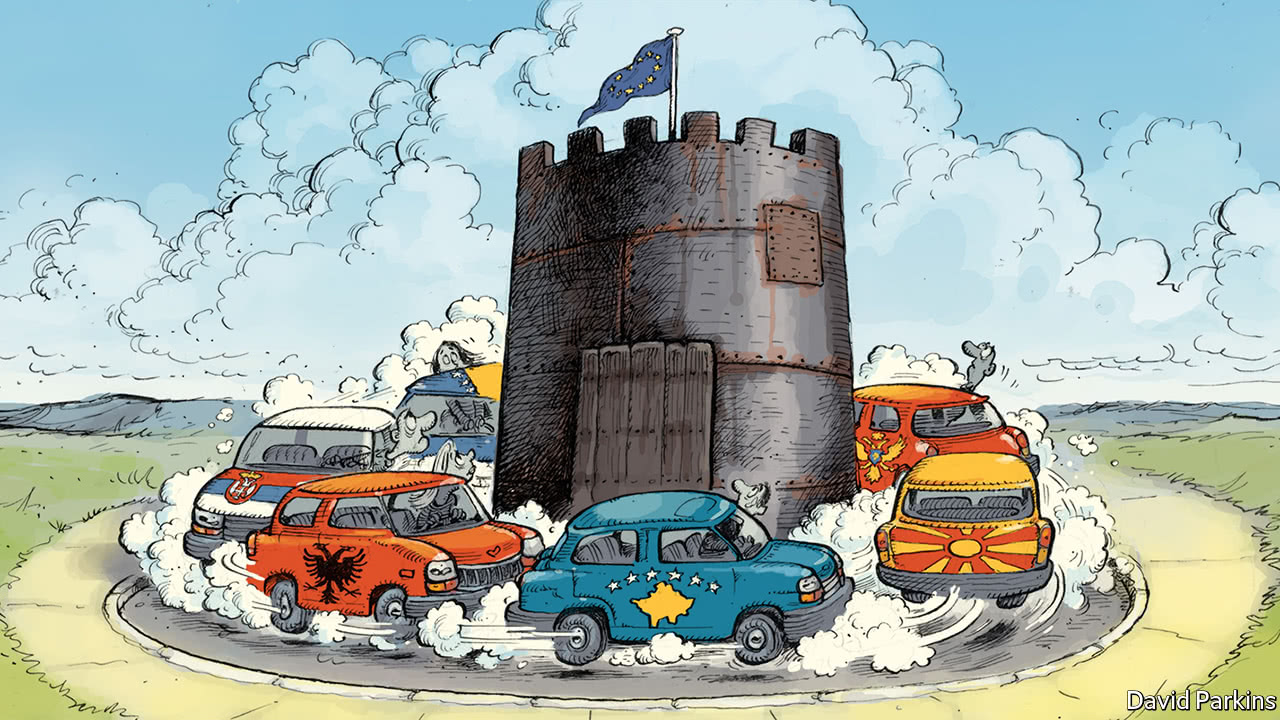Are the Balkans part of Europe? This question is not simply about geography. Nor is it just about membership or the prospect of membership in the EU, in political Europe. If it were, the answer would be “Not entirely, but the Balkans will be part of Europe.” Thus, in both cases, the question would be superfluous. Of course, its meaning is more problematic, referring to the political-cultural values of the European tradition. The sceptics might ask rhetorically, “Do the Balkan people share the values of European Humanism, Enlightment, liberalism, tolerance, coexistence in diversity?!” Are these values truly common in the societies of our region? Meanwhile, the same bitter scepticism, the same pessimism, could be apparent if we take a look, not just at the history of the other part of Europe, but also at its current political landscape. When we talk about the values of the European tradition, we mean ideals, or perhaps it is more appropriate to say a “realistic utopia”, the term used by John Rawls, or a realisable dream, one realised to a considerable extent in the western part, or to be more precise, in the north-western part of the continent. Although currently these values are increasingly at risk. Is it possible that the decades that followed the Second World War were just an interregnum?
The editorial of the first issue of this journal began with this question: “Where is Europe going”? Some of the articles we publish in this current issue address this question from different perspectives, for example, the articles by Josep Ramoneda (Barcelona) and Ivan Krastev (Sofia-Vienna). To complement this analysis, the situation in the Balkans is also explored, with an article by Agon Maliqi (Prishtina), and in particular, the relations with the other part of Europe are covered more broadly in an interview with the Slovenian writer Boris A. Novak, vice-president of the International PEN. “The sinister fame of the Balkans cannot and must not be dismissed as a pure construction of the West, which is a popular slogan of nationalists in different, mutually hostile Balkan nations. We shall have to admit that the bloody mess of the Balkans was not just an import of the strategic interests of great imperial powers, but our own doing in the first place. So we’ll have to clean up our own mess ourselves”, he says in the interview. This is the heart of the position to be taken toward “the great powers” and toward our collective self, toward the Balkans as a common identity.
The Balkans and the other part of Europe are connected like communicating vessels, just as the Balkan countries are with one another. Just as a large number of articles in this edition are also linked like communicating vessels. Thus, the interview with Boris A. Novak, touching on a series of important topics, of course, addresses the Bosnian war, and in so doing, it links to another article in the Forum section, by Ferida Duraković, who reveals with particular emotion the role of art in beseiged and bombed Sarajevo. Meanwhile, another article in this section, by the Greek writer Thomas Tsalapatis, speaks of the poetry of another difficult, though different, situation, the economic crisis in his own country. The Forum section is completed with an article by Andrej Nikolaidis about corruption as the sickness of democracy, which then links in turn to an article by Alexandra Channer on Kosovo, in the The Gaze of the Other section. Another aspect of the present Balkan panorama, also a global phenomenon, is the influence of social networks on the media and how they transform relations between the public and the traditional media, a phenomenon addressed, not without some nostalgia, by the young scholar, Edon Qesari.
What else is there in this edition? The reader will find Ágnes Heller and Georges Banu, with their universalist approach; Aleksandar Prokopiev revealing the typical humour and atmosphere of the south-western Balkans in his novel, Peepers, from which we publish a short fragment; and the twentyyear-old Albanian-Romanian Iulia Enkelana, with her different perspective, a series of artistic photographs accompanied by her reflections. And lastly, The Bridge would like to share with our readers the sad news of the death of Borka Pavićević, distinguished Serb intellectual and member of the Ethical Board of our magazine. Translated by Alexandra Channer

